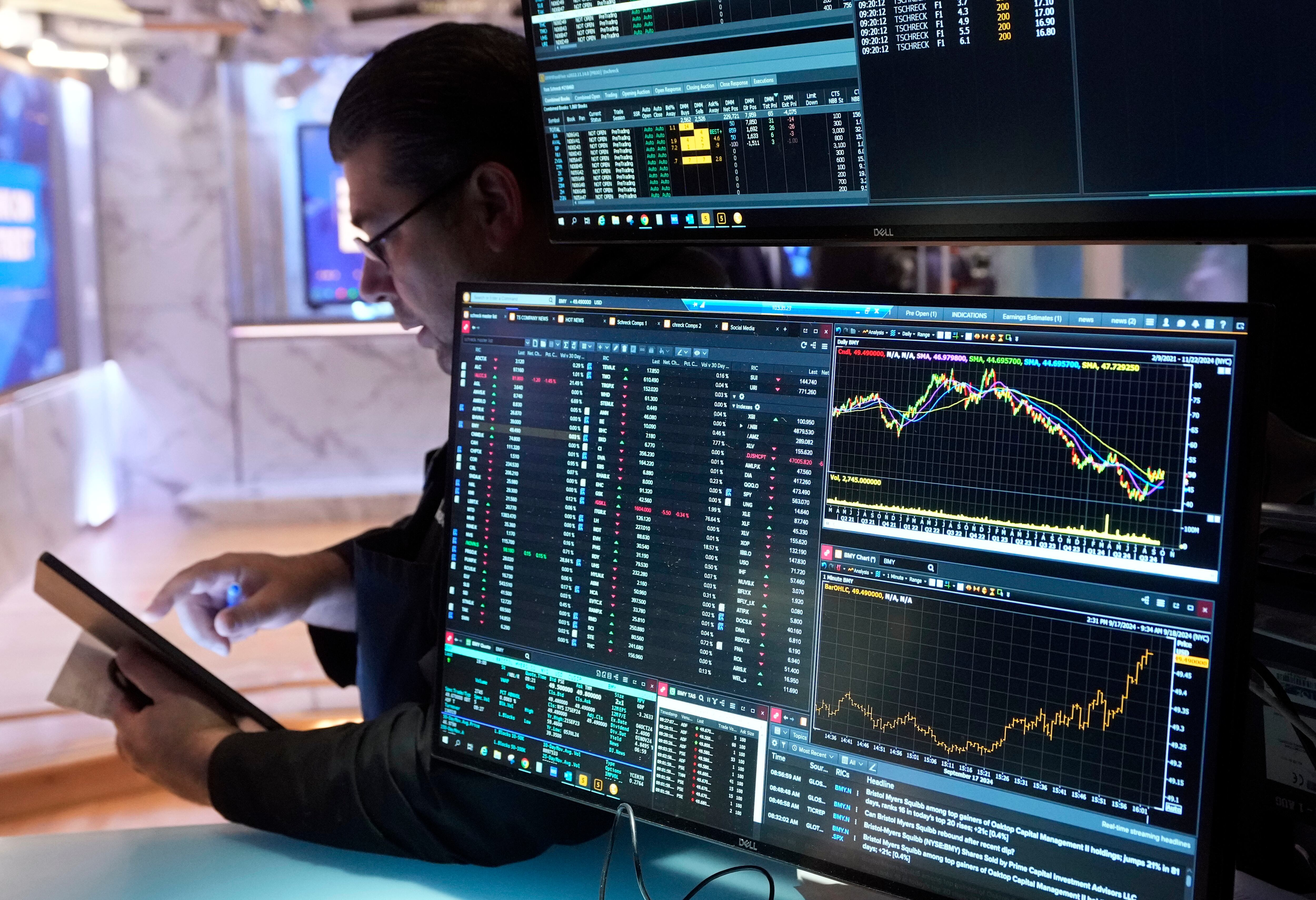By Stan Choe
Drops for technology stocks left Wall Street mixed Wednesday and sapped more momentum from its five-week rally.
The S&P 500 fell 23.02, or 0.5%, to 4,365.69. It was a third straight pullback for the index after it rallied last week to its highest level in more than a year.
Weakness for high-growth stocks hit the Nasdaq composite in particular, and it lost 165.09, or 1.2%, to 13,502.20. Still, roughly as many stocks rose as fell on Wall Street, and the Dow Jones Industrial Average dropped by a milder 102.35 points, or 0.3%, to 33,951.52.
Wall Street had been on a tear this year, with the S&P 500 up nearly 14% amid hopes that inflation is coming down quickly enough for the Federal Reserve to stop hiking interest rates soon. That would take pressure off the economy and could allow it to avoid a recession. Some analysts say the rally ran too far, too fast while inflation has remained stubbornly high, which could force the Fed to keep rates higher for longer.
Fed Chair Jerome Powell said Wednesday that "the process of getting inflation back down to 2% has a long way to go.” He said again that a couple more rate increases may be on the way, though the speed of the hikes is likely to slow after moving at a furious speed since early last year.
“Given how far we’ve come, it may make sense to move rates higher but to do so at a more moderate pace,” he said in testimony before a House of Representatives committee. He likened it to slowing from 75 miles per hour on a highway to 50 and then even slower as the destination nears.
High rates have already helped cause three high-profile failures in the U.S. banking system. The banking industry remains under pressure, even after the federal government acted quickly to provide support.
Smaller and regional banks account for about 50% of U.S. commercial and industrial lending, according to Ann Miletti, head of active equity at Allspring Global Investments. And pressure on these banks would make it tougher for smaller and midsized businesses to get loans, which would hurt the economy.
Miletti said she’s leaning toward the probability of a coming U.S. recession because of how much the Fed has already raised rates in such a short time. She said the recession may not be very deep, but it could still last longer than many predict.
“Inflation is retreating,” she said, “but it won’t be a smooth decline.”
In the bond market, yields pared their gains from earlier in the morning. The yield on the 10-year Treasury was holding steady at 3.72%. It helps set rates for mortgages and other important loans.
The two-year Treasury yield, which moves more on expectations for the Fed, rose to 4.71% from 4.69% late Tuesday.
Higher interest rates drag on all kinds of stocks, bonds and other investments. But high-growth stocks tend to be some of the hardest hit, and several Big Tech stocks were among the heaviest weights on the market.
Nvidia fell 1.7%, giving back some of its spectacular gains from earlier this year driven by Wall Street's frenzy around the artificial-intelligence industry. The chip maker is still up nearly 195% for the year so far after saying AI would result in a tremendous leap in its revenue.
Tesla dropped 5.5%, and Microsoft lost 1.3%.
FedEx fell 2.5% after its forecast for upcoming earnings looked low against some analysts’ expectations. That was despite reporting stronger profit for the latest quarter than Wall Street forecast.
On the winning side of Wall Street, Dollar Tree rose 4.6% after it stuck with its forecast for earnings this fiscal year.
Energy stocks also climbed along with oil prices. Exxon Mobil rose 1.1%, and Baker Hughes gained 2.3%.
In markets abroad, stocks continued to tumble in China amid worries about a stumbling recovery for the world’s second-largest economy. The Hang Seng in Hong Kong fell 2% for its second straight sharp drop after the Chinese government cut some interest rates by less than some investors had hoped.
Stocks in Shanghai fell 1.3%, and South Korea’s Kospi sank 0.9%.
In Europe, stock indexes were modestly lower.
The FTSE 100 in London dipped 0.1% after a U.K. report on inflation came in hotter than expected. That raised speculation that the Bank of England will hike interest rates again at its meeting Thursday.
AP Business Writers Matt Ott and Elaine Kurtenbach contributed.
Updated with latest details












